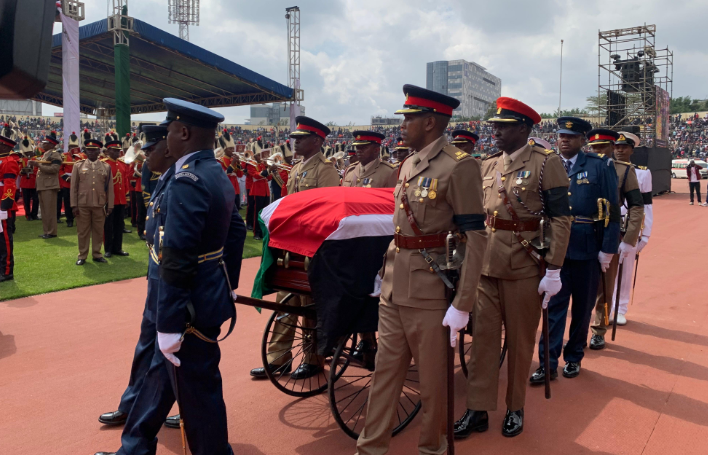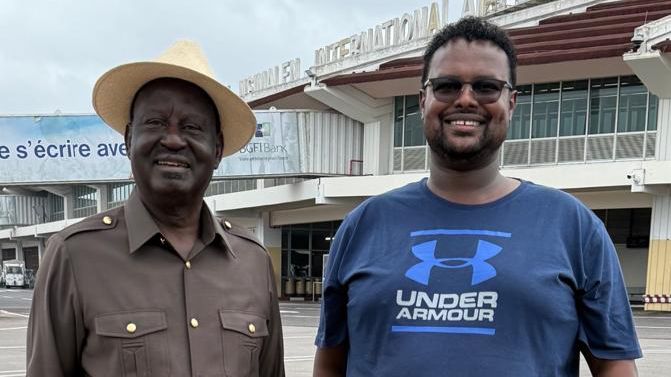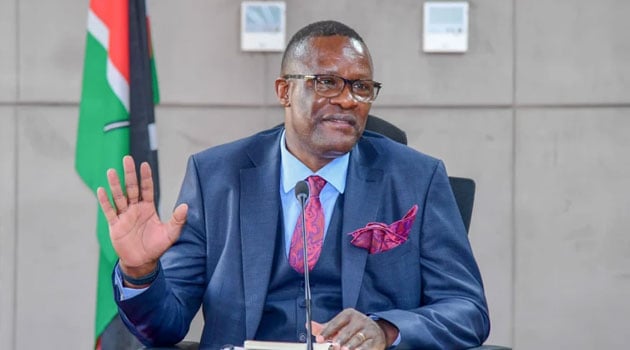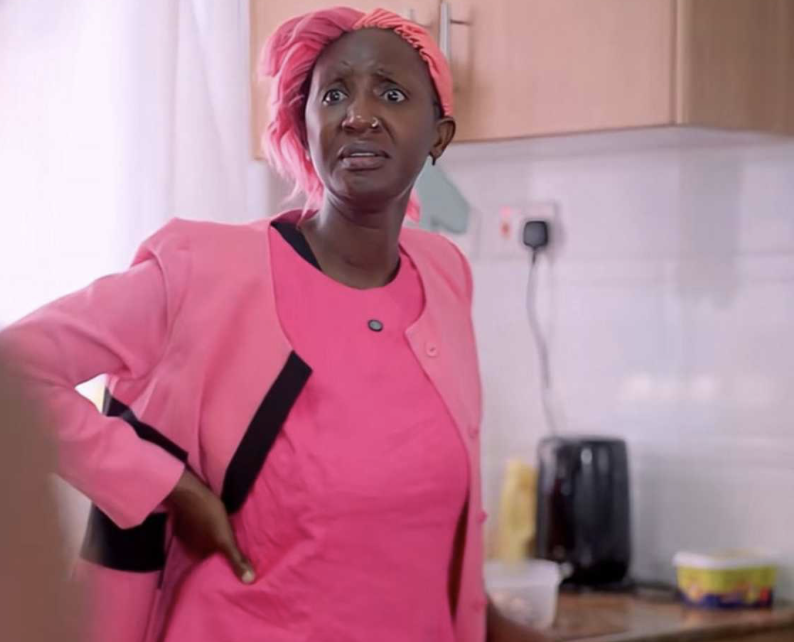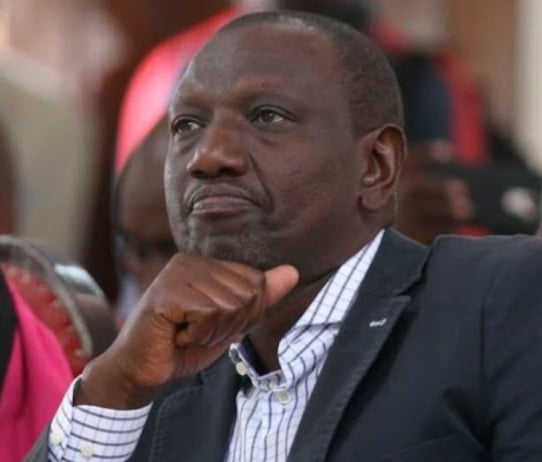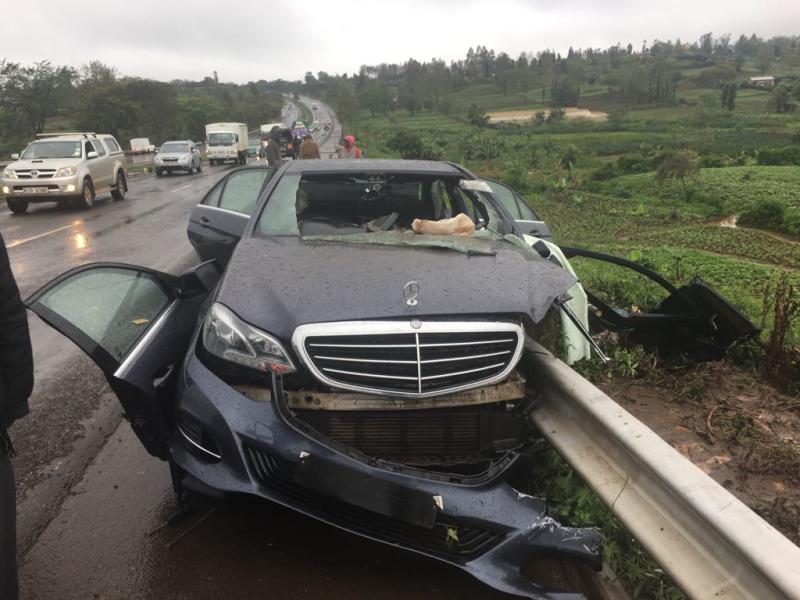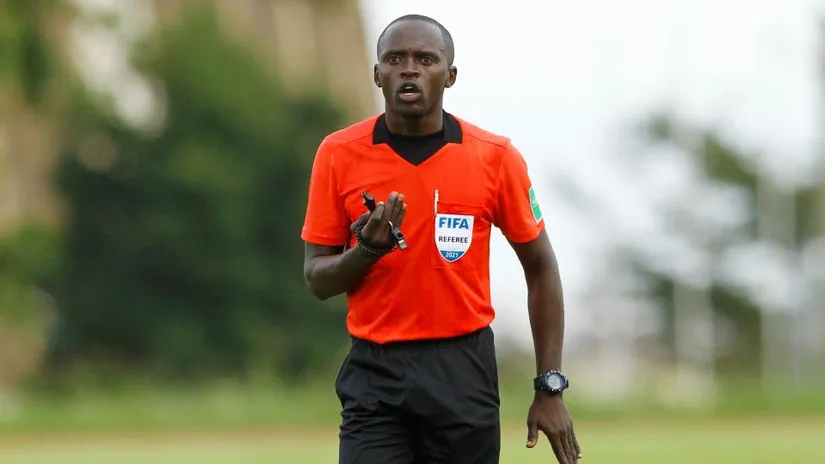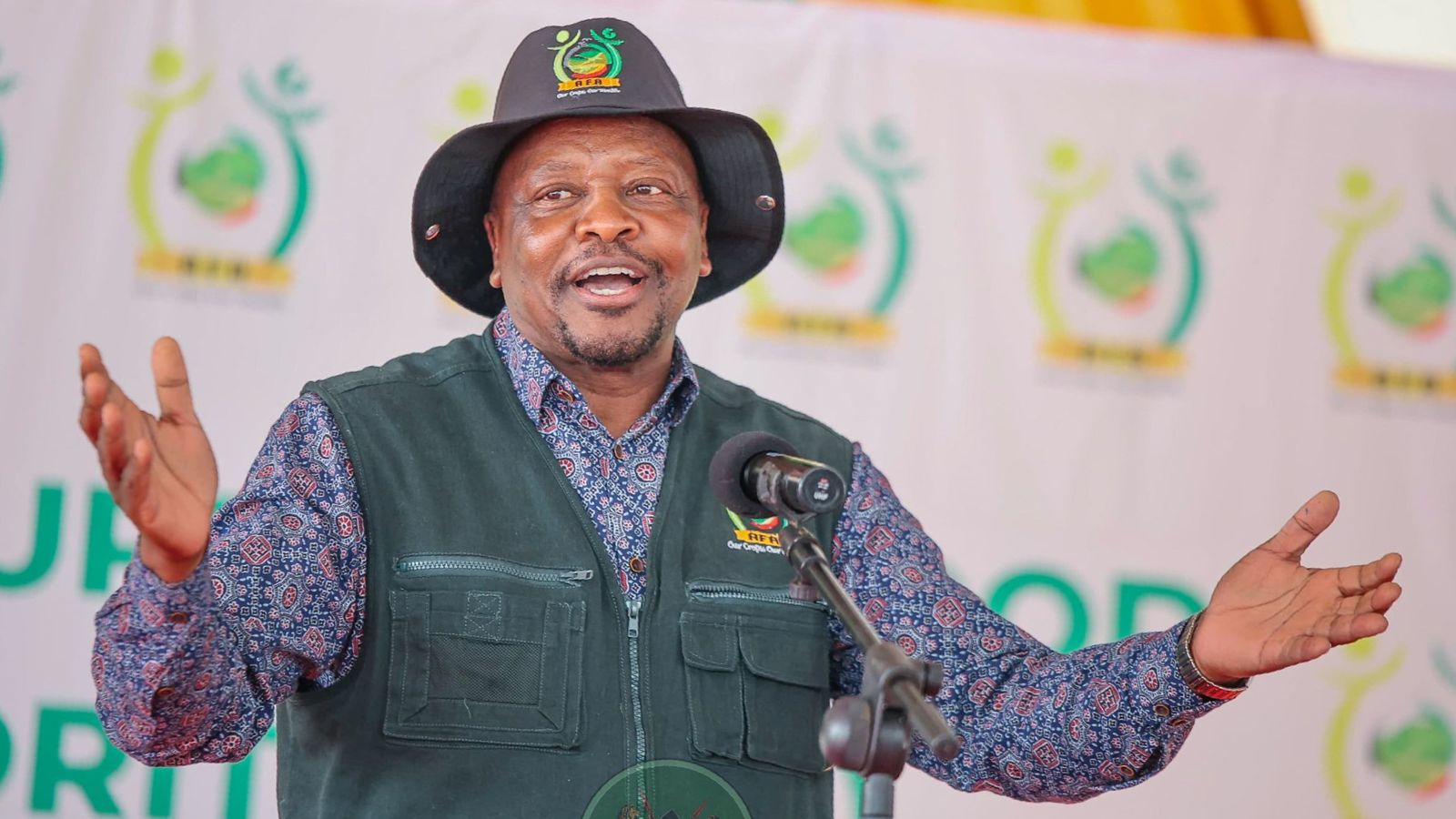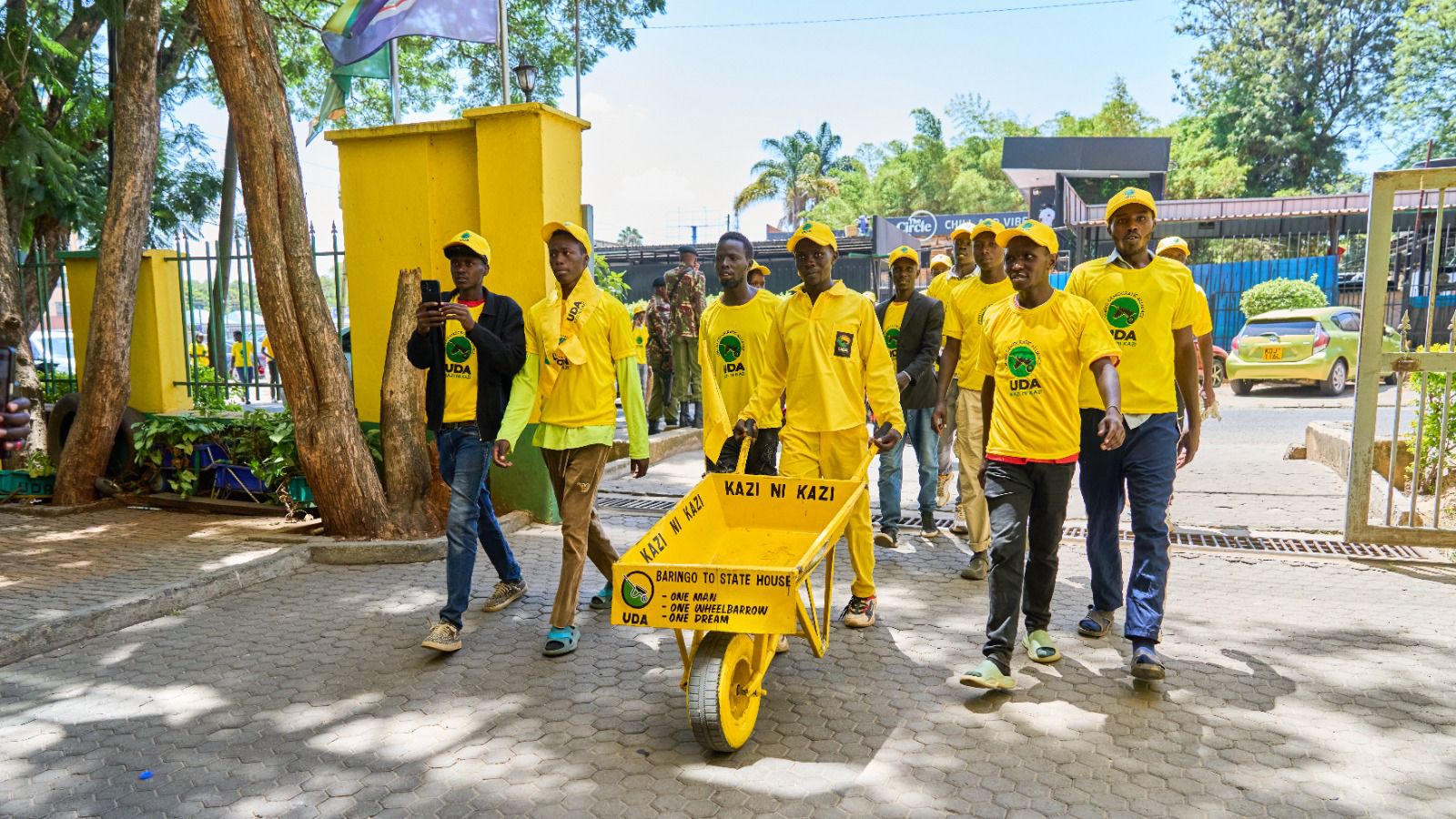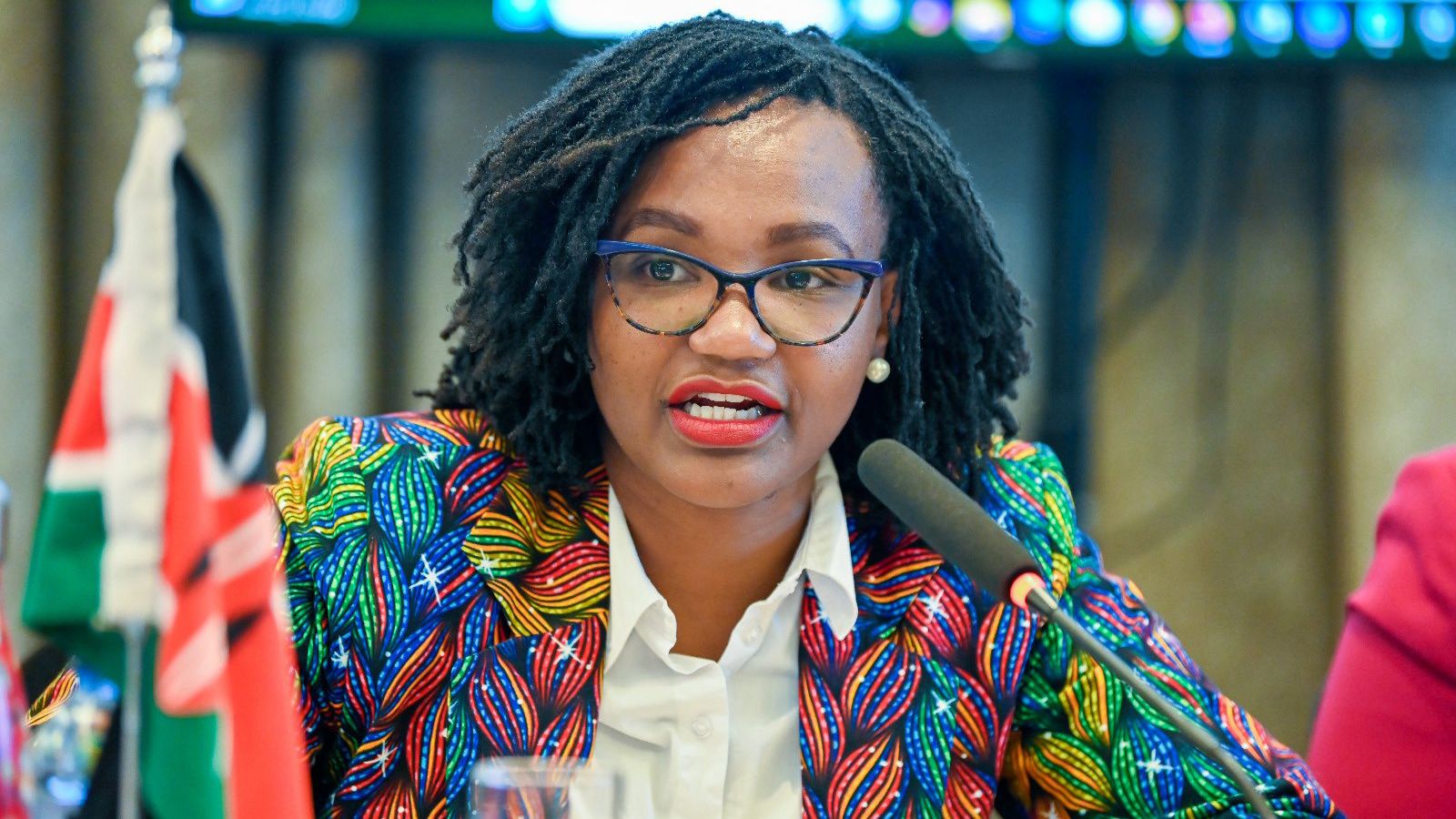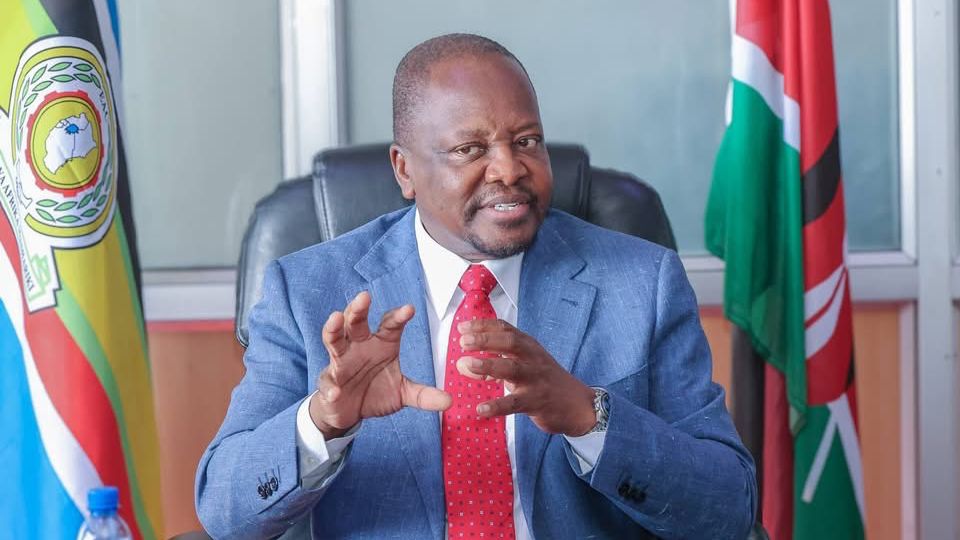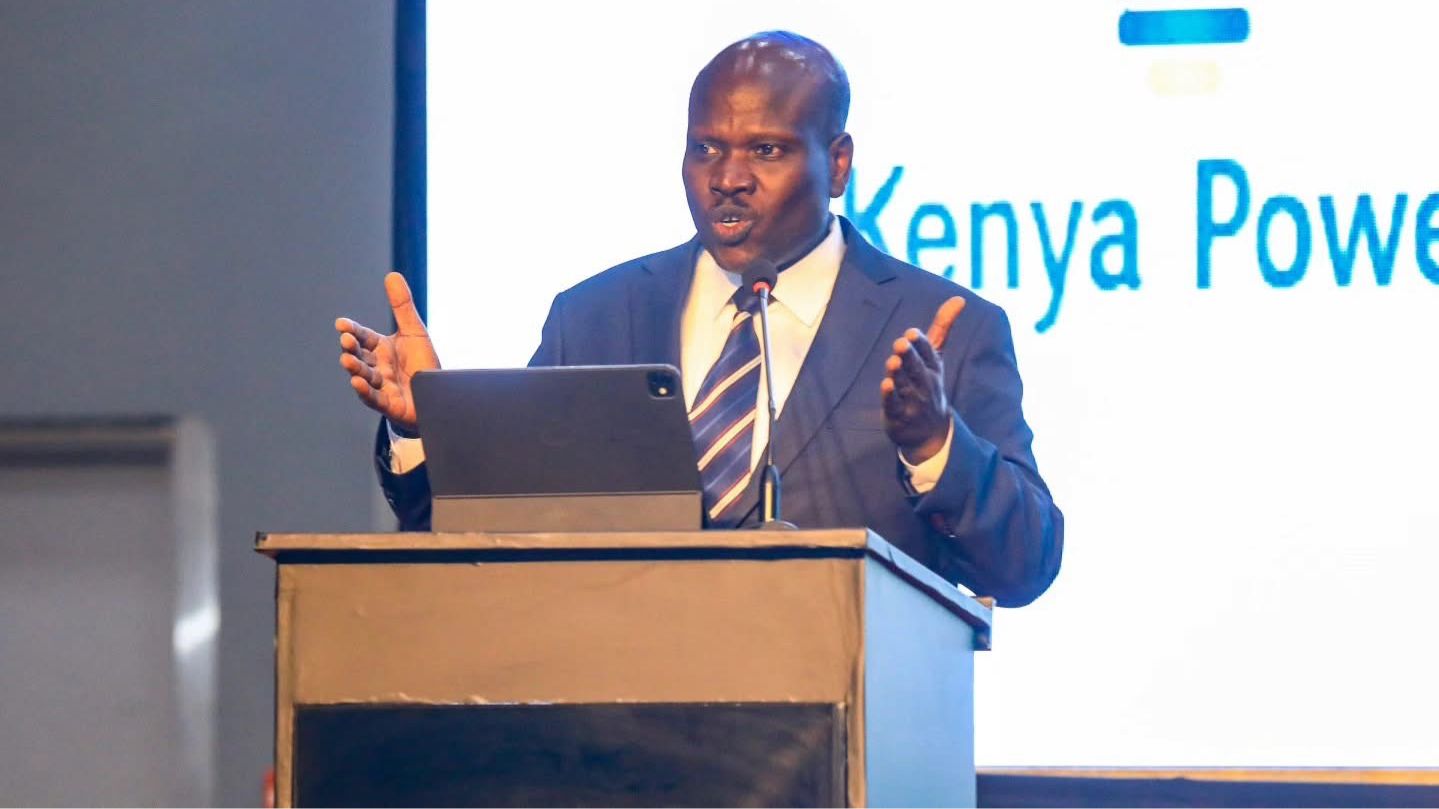Kenya came to a standstill on 17 October 2025, as thousands filled Nyayo Stadium to bid farewell to Raila Amolo Odinga, a man whose name had become synonymous with Kenya’s long, winding fight for democracy.
The atmosphere was thick with emotion; tears, songs, chants, and memories converging to honour a leader whose life had touched every corner of the nation. From the podium, his daughter Winnie Odinga captured the weight of his legacy in words that drew both laughter and tears.
“To the world, you were known by many names. When you were growing up, they used to call you Aluo; when you started work, they started calling you Jaramogi's son. At some point, they started to call you Tinga, at another point they started to call you Agwambo, briefly they called you Nyundo, they called you Jakom, they called you Baba Fidel, but in the end they called you Baba," Winnie divulged.
President William Ruto, in his tribute, echoed that sentiment, describing Raila as a man of many faces and rare greatness.
“Raila Amolo Odinga. Wuod Mary, Wuod Nyar Alego, Agwambo, Tinga, Jakom, Enigma, Wuod Piny, Baba, a man in whose honour we gather here today, belonged to that rare irreplaceable breed of human beings," Ruto said.
Read More
Raila was known by many names, each carrying a story, a sentiment, a symbol of the role he played in Kenya’s social and political journey. The popular nicknames associated with him reveal the different faces of his legacy. Below are some of those names, what they meant, and how they came to be.
Wuod Mary, Wuod Nyar Alego
In Dholuo, this means “son of Mary” and “son of the woman from Alego.” These familial terms were often used affectionately, grounding the political titan in his humble roots. They reminded Kenyans that before the rallies, barricades, and ballots, he was still Wuod Mary, the son of a mother.
Agwambo
The name Agwambo, loosely translated from Dholuo as “the mysterious one” or “the unpredictable one,” captures Raila’s uncanny ability to rise when counted out. Time and again, when political tides seemed to drown him, he re-emerged stronger, louder, and more determined. To his supporters, Agwambo was the man who turned impossibilities into victories, the embodiment of resilience in Kenya’s ever-shifting political terrain.

Tinga
Tinga comes from the Kiswahili word 'tinga tinga'; tractor. The nickname traces back to the 1990s, when Raila’s National Development Party (NDP) adopted the tractor as its symbol. It stood for movement, strength, and progress. On the campaign trail, his booming energy and refusal to slow down made the name stick. Tinga became synonymous with a political machine that cleared obstacles in its path.
Nyundo
Meaning “hammer” in Kiswahili, Nyundo dates back to Raila’s days in the Forum for the Restoration of Democracy–Kenya (FORD–Kenya), whose emblem was the hammer. It reflected his forceful approach to politics; the will to break barriers, strike against injustice, and rebuild where systems had failed. To his admirers, Raila was Nyundo, the hand that struck corruption and fear with conviction.
Jakom
In Dholuo, Jakom means “chairman.” The nickname came naturally as Raila led various political movements, from the Orange Democratic Movement (ODM) to opposition coalitions. Within his circles, Jakom signified leadership and authority; the one whose voice could steady chaos and whose hand could guide change. It was both affectionate and reverent; a recognition of his stature as a seasoned captain in turbulent political waters.
The Enigma
The title, The Enigma, first gained prominence through the 2006 biography, Raila Odinga: An Enigma in Kenyan Politics by Babafemi A. Badejo. It encapsulated the paradox of a man admired and criticised in equal measure. For decades, Raila was visionary to some, controversial to others, yet always compelling. His political life was a puzzle of passion, persistence, and principle. The Enigma became the perfect mirror of a leader who could never be boxed in, only respected for his complexity.
Arap Mibei
Among the Kalenjin, Raila was fondly called Arap Mibei, meaning “son of the lake.” The name reflected not only his Luo heritage from the shores of Lake Victoria but also the rare cross-cultural respect he commanded across regions. It symbolised kinship beyond tribe; a unifying spirit that resonated even in rival strongholds.

Njamba
In Kikuyu, Njamba means hero. Though used sparingly, it carried deep admiration, acknowledging Raila’s courage in standing up to regimes that silenced dissent. To his supporters from the Central region, he was Njamba, the brave one who bore the cost of freedom so others could speak.
RAO
A simpler shorthand of his initials, Raila Amolo Odinga, RAO, became popular in online and political spaces. It embodied a modern, punchy identity for a leader who connected with both the grassroots and the digital generation.
Joshua
Borrowed from the Bible, Joshua captured his self-styled mission to lead Kenyans to a promised political land, Canaan. During the 2017 campaigns, he embraced the name as a metaphor for freedom, justice, and transformation. For millions, he was Joshua, the leader who never stopped believing that Kenya could cross over into something better.
The People’s President
After the disputed 2017 elections, Raila was symbolically “sworn in” at Uhuru Park as the People’s President. The act, though politically risky, cemented his image as a champion of democracy and defiance. For his followers, this title was not about legality but legitimacy.
Baba the Fifth
During the 2022 presidential campaigns, Raila embraced the title Baba the Fifth, a declaration both of faith and ambition. It marked his fifth stab at the presidency and symbolised his quest to become Kenya’s fifth president. The phrase carried a sense of destiny, as though history itself was aligning for his long-awaited moment. Supporters chanted it not just as a slogan but as a prophecy, that Baba, after years of struggle and sacrifice, was finally on the verge of completing the circle of leadership he had pursued all his life.
Baba
And then, there was Baba. Simple yet profound. It transcended politics, generations, and languages. To call him Baba was to claim him as family; the father figure who carried the nation’s frustrations and hopes. In villages, estates, rallies, and funerals, the chant was the same: “Baba! Baba!”. While every nickname told part of his story, Baba told it all, because in him, millions saw not just a politician, but a protector, a guide, and the father of a movement that refused to die.
Even in his rest, the names remain; spoken with reverence, remembered with emotion, and woven into the nation’s collective memory. They endure as part of Kenya’s story, marking the life of a man who left an indelible imprint on its history.
